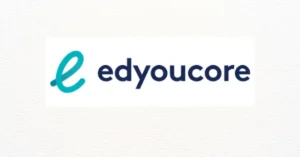In an age of decentralized economies, digital borders, and rapidly evolving social contracts, new experiments in governance are emerging that challenge traditional notions of nationhood, identity, and participation. One of the most intriguing is Argentstate.com.
To the casual browser, Argentstate.com may resemble a sleek civic-tech portal. But beneath the surface lies a conceptual framework that blends blockchain governance, identity modularity, policy simulation, and community-driven legislation into something far more ambitious: a working prototype of a virtual sovereign state.
As digital natives demand greater say in the systems that govern them, Argentstate.com positions itself as both a tool and a territory—not defined by geography but by participation, transparency, and code.
The Vision Behind Argentstate.com
Founded in late 2023 by a cohort of technologists, urban planners, and legal theorists, Argentstate.com was conceived as an experimental digital republic. It offers a place where users can:
- Propose and vote on policies
- Construct digital citizenship identities
- Engage in transparent simulations of economic and legal systems
- Track collective decisions via smart contracts
Its motto, “Consensus is Citizenship,” reflects a core tenet: that governance should be participatory, iterative, and visible.
Key Features and Functions
1. Digital Citizenship Engine
Users sign up by creating a modular identity, selecting value alignments (e.g., eco-conscious, meritocratic, egalitarian), and gaining “civic tokens” through activity and verified contributions. These tokens power voting rights, access to advanced features, and eligibility for higher governance roles.
2. Policy Sandbox
Argentstate.com includes a real-time policy simulator where users can draft legislation and immediately see projected outcomes, based on economic models and behavioral algorithms. This feature blends civic education with legislative experimentation.
3. Blockchain-Verified Voting
All votes are recorded on a transparent ledger. This not only prevents fraud but also allows full auditability of every civic action. Voters can review their history and assess how closely policies align with original proposals.
4. Open Source Constitution
Instead of a fixed legal document, Argentstate.com maintains a “living constitution” written in a Git-based version control system. It can be amended by supermajority, but all changes are permanently recorded.
5. Decentralized Judicial Mechanism
Disputes are resolved through a hybrid jury/arbitration model where randomly selected citizens and AI moderators collaborate to issue verdicts. Decisions are ranked by community review and expert peer feedback.
Who Is Using Argentstate.com?
Although still in its pilot phase, Argentstate.com has attracted diverse participants:
- Students and educators using it for civic engagement and public policy training
- Web3 developers testing decentralized governance modules
- Activist networks simulating consensus mechanisms for real-world advocacy
- Displaced populations experimenting with stateless digital identity models
A growing number of micro-communities are using Argentstate as a parallel infrastructure for local decision-making, especially in regions where civic trust is low or governmental access is limited.
The Philosophy: What Is a State in the Digital Age?
Argentstate.com doesn’t propose replacing physical states. Instead, it questions whether the functions of statehood—legitimacy, protection, public service, consensus, rights—can exist outside traditional frameworks.
In many ways, Argentstate is less about territory and more about functional sovereignty: the ability to self-organize, self-regulate, and self-correct within a defined framework.
Its structure borrows from platform cooperativism, game theory, and even indigenous governance models. It tries to encode civic ethics into software, allowing laws and rights to evolve with the consent of those they affect.

Advantages and Innovations
1. Radical Transparency
Every policy change, transaction, and ruling is timestamped and visible. This is a direct counter to opaque bureaucracies and corruption.
2. Gamified Participation
Citizens are rewarded for civic contribution—not with money, but with influence and access. This gamification boosts engagement.
3. Forkable Societies
If a group disagrees with the platform’s direction, they can “fork” their own version using the open-source architecture, creating competing models of digital citizenship.
4. Dynamic Accountability
Reputation scores evolve based on participation quality, not popularity. Toxic behavior or manipulation gradually limits access to high-impact decisions.
Ethical and Practical Challenges
1. Exclusion by Complexity
While open in theory, the platform can be hard to navigate for non-technical users or those unfamiliar with civic systems.
2. Digital Sovereignty Dilemmas
Governments may view virtual states as threats or gray zones for regulation, taxation, or enforcement.
3. Data Sovereignty
Where does user data live? Who owns it? Argentstate uses decentralized storage, but questions remain about long-term governance.
4. Scalability vs Purity
As more users join, there are tradeoffs between idealistic governance models and pragmatic implementation.
The Broader Ecosystem
Argentstate.com is part of a wider constellation of efforts to reimagine governance:
- Decidim (Spain): Open-source participatory democracy framework
- RadicalxChange (US): Political economy experimentation platform
- BitNation (defunct): Early effort at blockchain-based citizenship
Yet Argentstate stands out for its design coherence and emphasis on simulation as civic education.
Testimonials from Early Adopters
“Argentstate gave my students a laboratory for democracy. It made political theory feel real.” — Civics Professor, Toronto
“For our refugee network, it helped us prototype trust-building before any real-world commitments.”— NGO worker, Istanbul
“We forked a feminist variant of the platform and now run monthly policy salons entirely online.”— Community organizer, Melbourne
Potential Futures
1. Integration with Education Systems
Argentstate modules could become part of civics curricula, offering hands-on governance training.
2. Hybrid Citizenship Models
Users might carry Argentstate IDs alongside national ones, adding layers of civic affiliation.
3. Disaster Response and Stateless Services
During crises, digital-first governance may provide continuity of identity and coordination.
4. Metaverse Governance Layer
As virtual worlds scale, Argentstate architecture could be used to govern decentralized game and work environments.
Conclusion: An Idea Whose Time Has Come?
Argentstate.com is not the answer to all governance challenges. But it represents a growing desire to move beyond passive citizenship and toward participatory systems where technology enables transparency, inclusion, and agility.
Whether it remains a niche experiment or catalyzes a broader rethinking of civic life, its existence signals that people are hungry for better ways to organize themselves.
In a world where borders are more virtual than ever, Argentstate.com might be the blueprint for how citizens of the future will define belonging, responsibility, and voice.
And in that future, a state may no longer be a place you are born into—but a space you build, together, line by line, in code.
For more information, click here.









